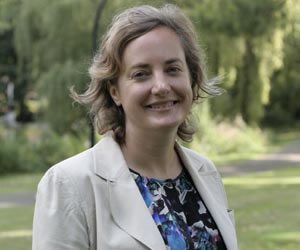Roehampton Uni Professor says learning of democracy must be at the heart of education
|
With a record number of young people having registered to vote for the UK general election, Bryony Hoskins, Professor of Comparative Social Science at the University of Roehampton, thinks that young people from disadvantaged background will be the least likely to vote and believes more needs to be done to improve education to reduce the social gaps in political engagement:
“Although we have seen a record number of young people between 18-34 years of age register to vote in the 12 December election, not all of them will actually vote even if they are registered, and the least likely to do so are those from disadvantaged backgrounds. In the last general election in 2017, the social group who voted the least were disadvantaged young people (young people aged 18-34 who were either unemployed or doing unskilled and semi-skilled labour), with a turnout of around 35% (IPSOS Mori 2017). This was followed by young people (18-34) doing skilled manual labor at 49%. All other social groups according to gender, age, social class and ethnicity had a turnout rate of more than 50% and the overall turnout was about 63% (IPSOS Mori 2017). Thus, the intersection between social class and age was the crucial factor that defined likelihood of voting.

Bryony Hoskins, Professor of Comparative Social Science
She continued: “One of the main factors that leads to socioeconomic inequalities in political engagement is education. According to our research*, at the age of 12 young people are already showing large differences in intentions to vote in England, and these differences increase significantly up to the age of 20. This rise is created through the lack of access to political learning – such as school councils, mock elections, debates and classroom discussions - for young people from lower socioeconomic backgrounds. These activities are usually dominated by middle class children. In addition, our study also found that children of parents with degrees were 50 per cent more likely to take part in political activities at school than those whose parents left school at 16, and 40 per cent more likely to do so than those whose parents left school at 18. Although citizenship education is part of the national curriculum, in reality in the current climate where academies and free schools no longer have to follow this curriculum, it is not clear how many students still receive citizenship education now.
“In order to reduce the social gaps in political engagement we need to rethink the priorities and purpose of education and place the learning of democracy at the heart of the education agenda. We need to reintroduce social class and inclusive education theory and practice into teacher training so teachers are able to understand the social groups in their classroom and include all groups within the full range of the curriculum. We need all schools including vocational colleges, academies and free schools to follow the full national curriculum - including citizenship education - and make citizenship education compulsory up until the age of 18 for all students. Political activities in school should be made mandatory like debates and mock elections. If all of the above is implemented, then we might have a chance to start tackling social inequalities in political engagement and protecting our democracy for the future.”
* The research was conducted by Bryony Hoskins, Professor of Comparative Social Science at the University of Roehampton, and Dr Jan German Janmaat of UCL Institute of Education (UCL). Hoskins and Janmaat, J.G. (2019) Education, Democracy and Inequality: Political Engagement and Citizenship Education in Europe. London: Palgrave Macmillan. www.springer.com/gb/book/9781137489753
November 29, 2019